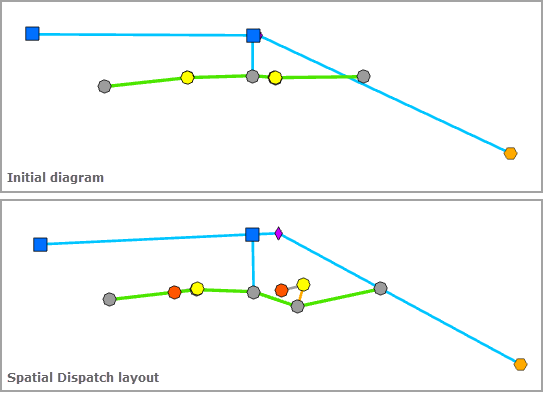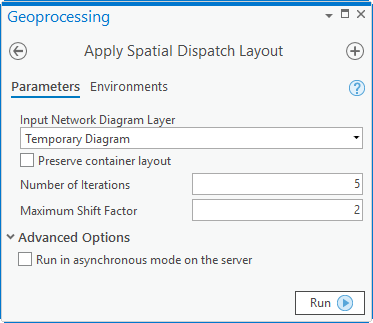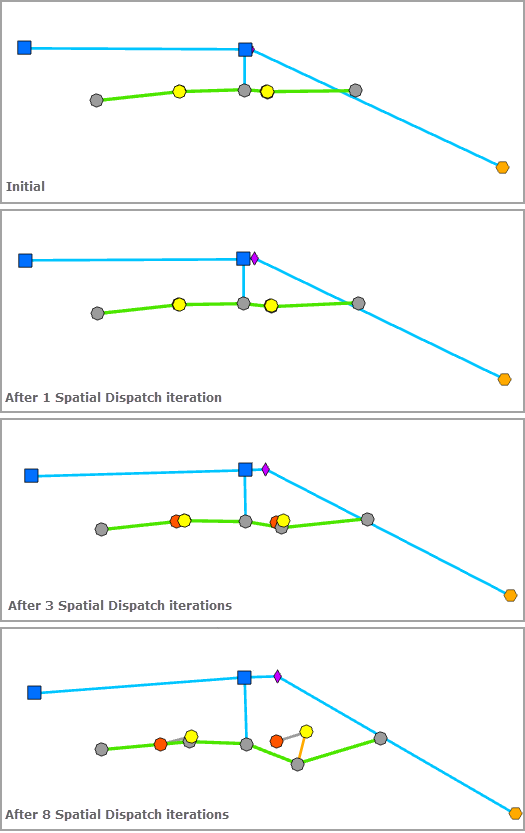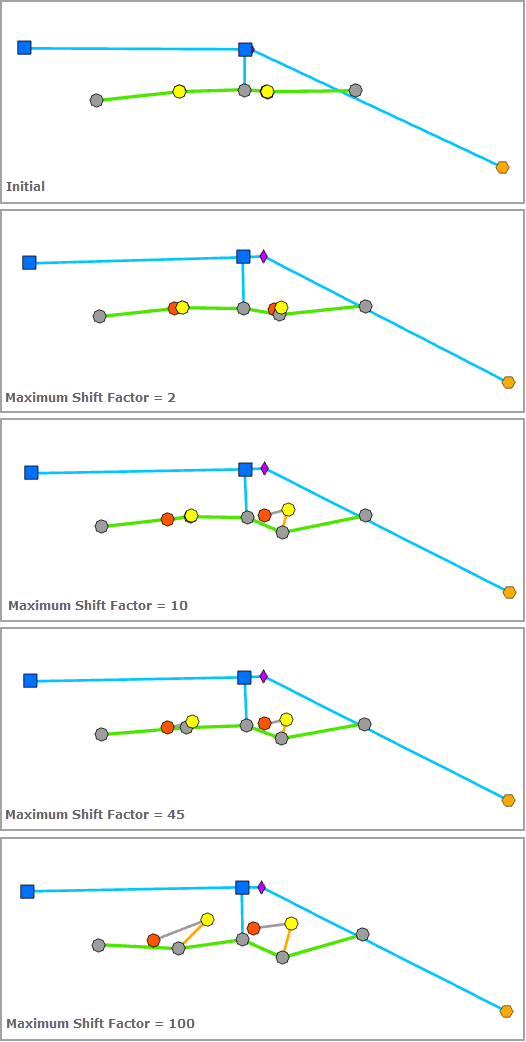Spatial Dispatch is a schematic layout algorithm that applies to any type of diagram.
This layout algorithm progressively separates diagram junctions that are visibly close to overlapping according to their current positions and to the shift factor specified.
The images below show a sample diagram before and after applying the Spatial Dispatch layout:
Apply the Spatial Dispatch layout on an active diagram map view
When applying this layout on a network diagram, the following prerequisites must be met:
- Since this operation is transactional, edits must be saved before it is run.
- The input network diagram layer to which the layout applies must be from either a utility network or trace network in a file geodatabase, or a network diagram service. When working with a utility network or a trace network in an enterprise geodatabase, the input network diagram layer must be from a service
To apply the Spatial Dispatch layout on an active diagram map view, do one of the following:
- On the Network Diagram tab, click the drop-down arrow on the Diagram Layouts button in the Layout group, and click the Spatial Dispatch layout item in the gallery.
- Load the Apply Spatial Dispatch Layout tool in the Geoprocessing pane.
Then, adjust the Spatial Dispatch layout parameters and click Run.
Note:
To apply the layout on a subset of features in the network diagram, use one of the Select Features tools (for example, Select By Rectangle, Select By Polygon, and so on) and select the diagram features before running.
Configure the Spatial Dispatch layout on a diagram template
To configure this layout on your diagram template, use the Add Spatial Dispatch Layout tool.
Spatial Dispatch layout parameters

The sections below clarify the main Spatial Dispatch diagram layout parameters.
Preserve container layout
Most of the layout algorithms work with the Preserve container layout option. This option allows controlling the algorithm execution so it executes either on the top graph of the diagram—Preserve container layout checked, or on both content and noncontent features in the diagram—Preserve container layout unchecked.
Number of Iterations
This parameter sets the number of iterations to process. The larger the number of iterations, the larger the separation between the diagram junctions that almost overlap, as shown in the images below:
Maximum Shift Factor
This parameter is used to increase the diagram junctions' displacement for junctions that are very close together. The larger the shift factor, the larger the separation between the diagram junctions that almost overlap. The images below show how the sample diagram content changes after applying the layout with a fixed number of iterations and different Maximum Shift Factor parameter values.